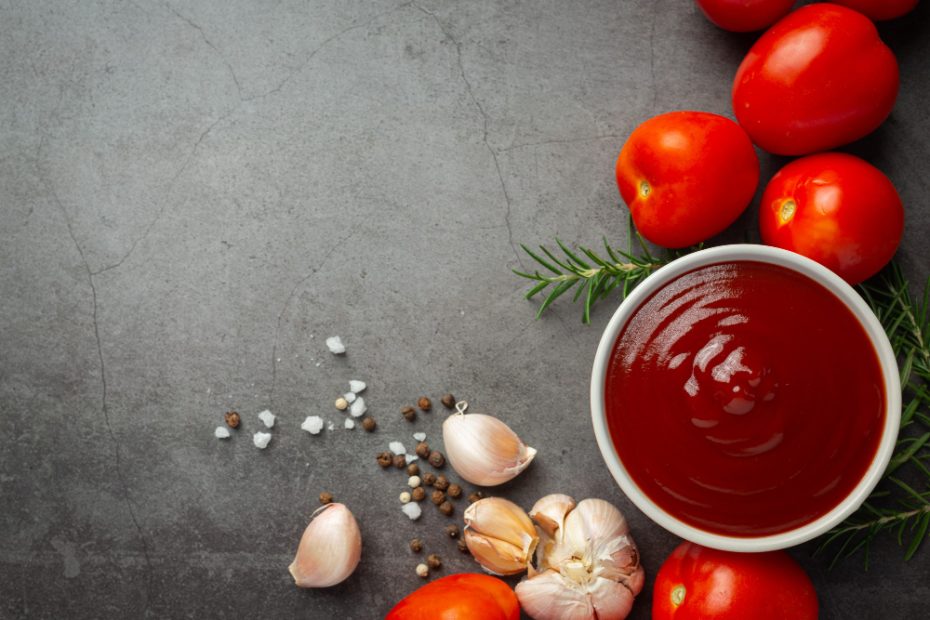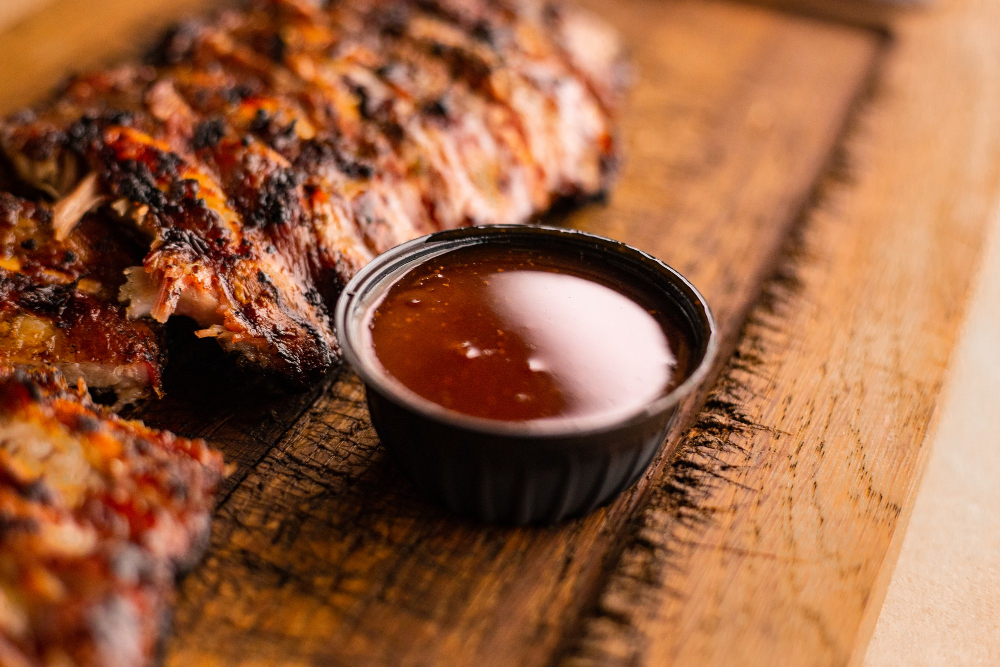What are the 5 types of marinades?
Marinades are a flavorful way to enhance the taste and texture of various meats, vegetables, and even tofu. They are commonly used in cooking to add depth and complexity to a dish. Whether you’re grilling, baking, or pan-frying, a marinade can take your culinary creations to the next level.
1. Acidic Marinades
The first type of marinade is acidic marinades. These marinades typically contain acidic ingredients such as vinegar, citrus juice, or wine. The acid helps to break down the proteins in the meat, making it more tender and allowing the flavors to penetrate deep into the food. Acidic marinades work particularly well with tougher cuts of meat like beef or pork.
Example ingredients for acidic marinades:
- Vinegar
- Lemon juice
- White wine
“Acidic marinades are excellent for tenderizing meat and infusing it with flavor.” – Chef John Doe
2. Oil-Based Marinades
Oil-based marinades consist mainly of oils, such as olive oil or vegetable oil, combined with various herbs, spices, and other flavorings. These marinades help to seal in moisture and prevent the meat from drying out during cooking. They are perfect for grilling and pan-frying, creating a delicious crust on the meat while keeping it juicy on the inside.
Example ingredients for oil-based marinades:
- Olive oil
- Garlic
- Herbs (such as rosemary or thyme)
3. Dairy-Based Marinades
Dairy-based marinades often incorporate yogurt or buttermilk as the main ingredient. The lactic acid in dairy products helps to tenderize the meat and add a creamy texture. These marinades are commonly used for poultry, as they infuse the meat with flavor while keeping it moist and juicy.
Example ingredients for dairy-based marinades:
- Yogurt
- Buttermilk
- Spices (such as cumin or coriander)
4. Soy-Based Marinades
Soy-based marinades typically feature soy sauce as the base ingredient, along with other seasonings like ginger, garlic, and honey. These marinades are popular in Asian cuisine and work well with various meats and vegetables. Soy sauce adds a savory umami flavor to the dish, while the other ingredients complement the meat’s natural flavors.
Example ingredients for soy-based marinades:
- Soy sauce
- Ginger
- Garlic
5. Fruit-Based Marinades
Fruit-based marinades are a delightful way to add a touch of sweetness to your dishes. Fruits like pineapple, mango, or even berries can be pureed and combined with spices and herbs to create a unique marinade. The natural enzymes in the fruit help to tenderize the meat while imparting a refreshing and tangy flavor.
Example ingredients for fruit-based marinades:
- Pineapple
- Mango
- Chili flakes
In conclusion, marinades play a crucial role in elevating the taste and texture of your culinary creations. Acidic marinades tenderize the meat, oil-based marinades seal in moisture, dairy-based marinades add creaminess, soy-based marinades provide an umami punch, and fruit-based marinades add a touch of sweetness. Experimenting with these different types of marinades will enhance your cooking skills and impress your family and friends with mouthwatering dishes.
What are the 3 basic components of marinating?
The Importance of Marinating
Marinating is a popular technique used to enhance the flavor and tenderness of meat, fish, and vegetables. It involves soaking the food in a mixture of ingredients to infuse it with flavors and break down its fibers, resulting in a more delicious and tender final product. To achieve the best results, marinating typically involves three basic components: acids, oils, and seasonings.
1. Acids
The first component of marinating is acids, which help to tenderize the meat and enhance its flavor. Common acid sources include citrus juices (such as lemon or lime), vinegar, yogurt, soy sauce, and wine. The acidity in these ingredients helps to break down the proteins in the meat, making it more tender and allowing the flavors to penetrate deeper into the food.
2. Oils
The second component of marinating is oils, which serve several purposes. Firstly, oils help to add moisture to the meat, keeping it juicy and preventing it from drying out during cooking. Additionally, they act as a carrier for flavors, helping the seasonings to adhere to the surface of the food. Common oils used in marinades include olive oil, vegetable oil, sesame oil, and melted butter.
3. Seasonings
The third component of marinating is seasonings, which add flavor and aroma to the food. This can include a wide range of ingredients, such as herbs, spices, garlic, ginger, onions, and various condiments like Worcestershire sauce or mustard. Experimenting with different combinations of seasonings can create unique and delicious flavor profiles for your marinated dishes.
Marinating is a great way to take your cooking to the next level. By understanding the three basic components of marinating – acids, oils, and seasonings, you can create delicious and tender dishes bursting with flavor.
When marinating, it is important to allow enough time for the flavors to develop. The duration will vary depending on the type and thickness of the food being marinated. As a general guideline, meat typically benefits from marinating for at least 30 minutes, but some recipes may call for overnight marination to achieve maximum flavor infusion.
To ensure food safety, always marinate in the refrigerator, especially when marinating raw meat, fish, or poultry. This avoids the risk of bacterial growth and contamination. Additionally, discard any leftover marinade that has come into contact with raw meat, as it may contain harmful bacteria.
In summary, when marinating, remember the three basic components: acids, oils, and seasonings. Be creative with your choice of ingredients, experiment with different combinations, and let the flavors meld together to create mouthwatering dishes that will impress your family and friends.
What are two common marinades?
Marinating is a popular technique used to infuse flavor into meats, seafood, and vegetables. It involves soaking the food in a seasoned liquid mixture before cooking to enhance taste, tenderize the texture, and add moisture. There are countless marinade recipes, but two common ones that you shouldn’t miss trying are:
1. Teriyaki Marinade
The teriyaki marinade originates from Japan and has gained popularity worldwide for its sweet and savory flavors. It typically consists of soy sauce, mirin (sweet rice wine), sake (Japanese rice wine), garlic, ginger, sugar, and sometimes sesame oil. The combination of these ingredients creates a delightful balance of saltiness, sweetness, and umami.
To use the teriyaki marinade, simply marinate your preferred protein, such as chicken, steak, or tofu, for at least 30 minutes or up to overnight in the refrigerator. The longer you marinate, the more intense the flavors will become. After marinating, cook the protein as desired – grill, bake, or stir-fry – and brush with the reserved marinade during cooking to enhance the taste even more.
2. Lemon Herb Marinade
If you prefer a bright and refreshing flavor profile, the lemon herb marinade is an excellent choice. Combining the zesty tang of lemons with aromatic herbs creates a versatile marinade that complements various foods, especially poultry, fish, and vegetables.
The key ingredients for a lemon herb marinade typically include fresh lemon juice, olive oil, minced garlic, chopped herbs like parsley, thyme, and rosemary, salt, and pepper. The acidity from the lemon juice helps tenderize the meat while infusing it with a citrusy tang.
To use the lemon herb marinade, coat your chosen protein or vegetables in the mixture and allow it to marinate for at least 15 minutes or up to a few hours. Then, cook the marinated food using your preferred method, whether it’s grilling, roasting, or sautéing, to enjoy the burst of flavors this marinade brings.
Marinating is a simple yet effective way to elevate the taste of your dishes. Experiment with different marinades to discover your favorite flavor combinations.
What are the Two Main Types of Marinades Used with Meats?
Introduction
Marinating meat not only adds flavor but also helps to tenderize tough cuts. There are two main types of marinades commonly used with meats – wet marinades and dry rubs. Each type offers its own unique benefits and can be tailored to suit different types of meat and personal preferences.
Wet Marinades
Wet marinades consist of a liquid base, such as oil, vinegar, citrus juice, or yogurt, combined with various spices, herbs, and seasonings. The meat is soaked in the marinade for several hours or overnight to allow the flavors to penetrate and tenderize the meat. Wet marinades are ideal for tougher cuts of meat, like flank steak or pork shoulder, as they help break down connective tissues, resulting in a more tender and flavorful dish.
Dry Rubs
Dry rubs, on the other hand, are a mixture of spices, herbs, salt, sugar, and sometimes dried powders like paprika or chili powder, which are applied directly to the meat’s surface. The meat is then allowed to rest, allowing the flavors to be absorbed. Dry rubs are particularly popular for grilling and smoking, as they form a flavorful crust on the exterior of the meat while preserving the natural juices and tenderness within.
Choosing the Right Marinade
When deciding between wet marinades and dry rubs, consider the meat you’re working with and the desired outcome. For tougher cuts that require tenderization, wet marinades are generally more effective. However, if you prefer a crispier texture or want to add some smoky flavors, dry rubs work best. Experimenting with different combinations of flavors and ingredients is a great way to find your favorite marinade.
“Marinades are an excellent way to enhance the flavor and tenderness of various meats. Whether you opt for a wet marinade or a dry rub, both methods can take your meat dishes to the next level.”
Here is an example of a simple wet marinade recipe:
| Ingredients | Instructions |
|---|---|
| 1/4 cup olive oil | Combine all the ingredients in a bowl and whisk until well mixed. |
| 2 tablespoons soy sauce | Place the meat in a resealable bag and pour the marinade over it. |
| 1 tablespoon lemon juice | Seal the bag and refrigerate for at least 2 hours or overnight. |
| 2 cloves garlic, minced | Remove the meat from the marinade before cooking. |
| 1 teaspoon dried thyme | Pat the meat dry and cook as desired. |
Remember, regardless of the marinade you choose, always follow safe food handling practices and discard any leftover marinade that has come into contact with raw meat to prevent cross-contamination. Happy marinating!



